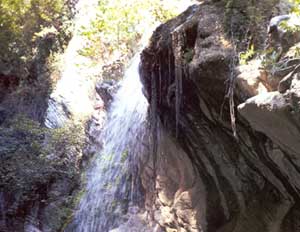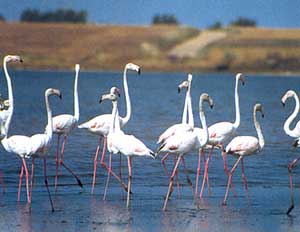GREECE: ECOLOGICAL TOURISM IN GREECE
|
Home | About | Help | Jobs | Contact Us | Advertise With Us | Submit Your Site |
|
|---|---|
|
Home | About | Help | Jobs | Contact Us | Advertise With Us | Submit Your Site |
|
|---|---|
![]()
|
GREECE: ECOLOGICAL TOURISM The variety and richness of Greek eco-systems provide a wide range of opportunities for alternative holiday experiences. You can explore: |
 The Neda Basin, Messinia, Peloponnese |

Thracian Wetlands |
Costal-Marine Ecosystems; The Greek seashore, with a coastline over 16,000 km. in length, is characterized by remarkable variety both in morphology and biological
species. Sandy beaches, rocks, islets, reefs and underwater meadows compose a special, precious natural resource.
Information on how to visit specific protected areas can be provided by various local information centers, local authorities and specialized agencies. Source: Tourist Guide of Greece® 2002 |
|
|
|
|
|Home| | About| |Help| |Jobs| | Contact Us| | Advertise With Us| |Submit Your Site| |Map| |
|